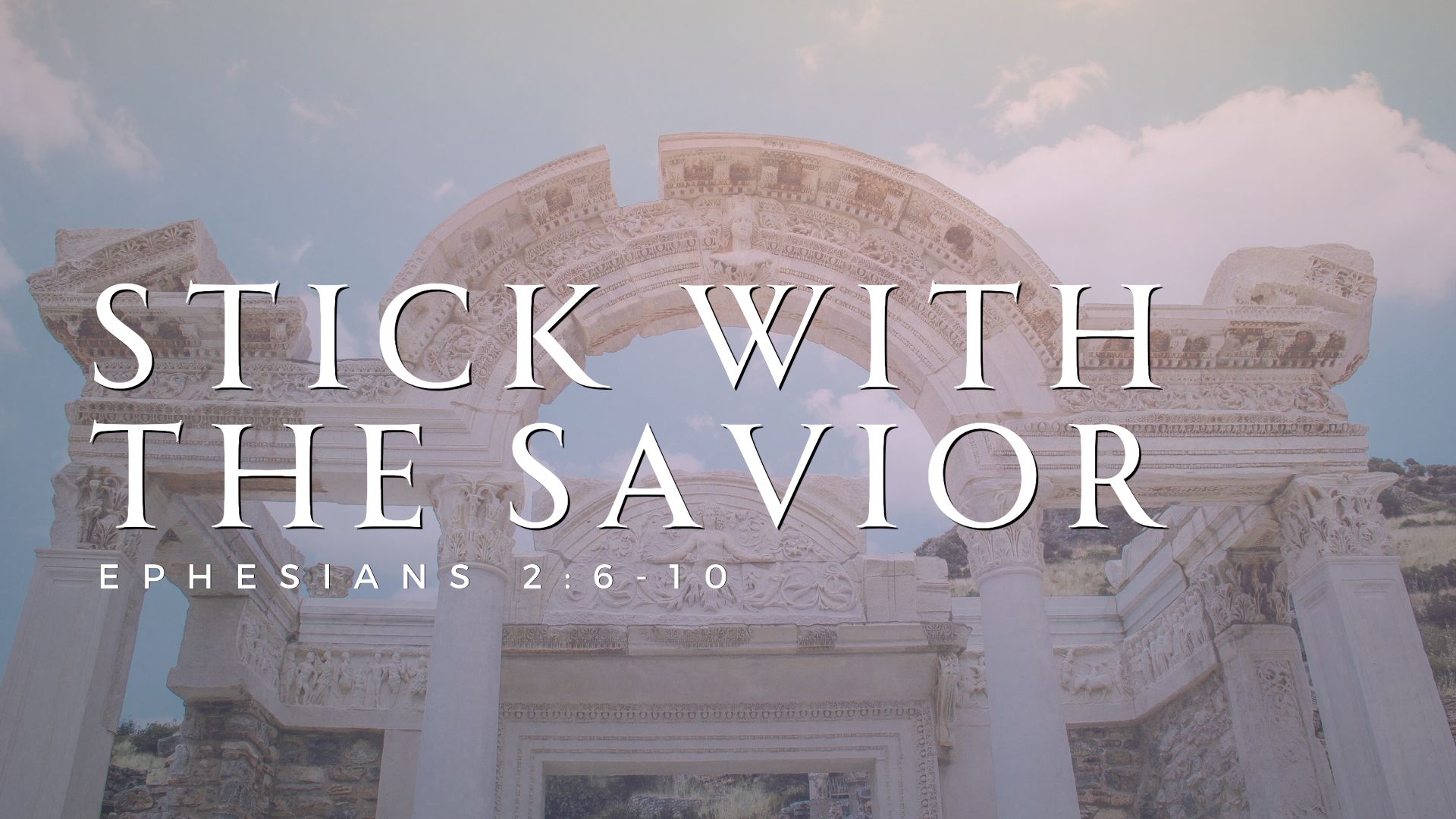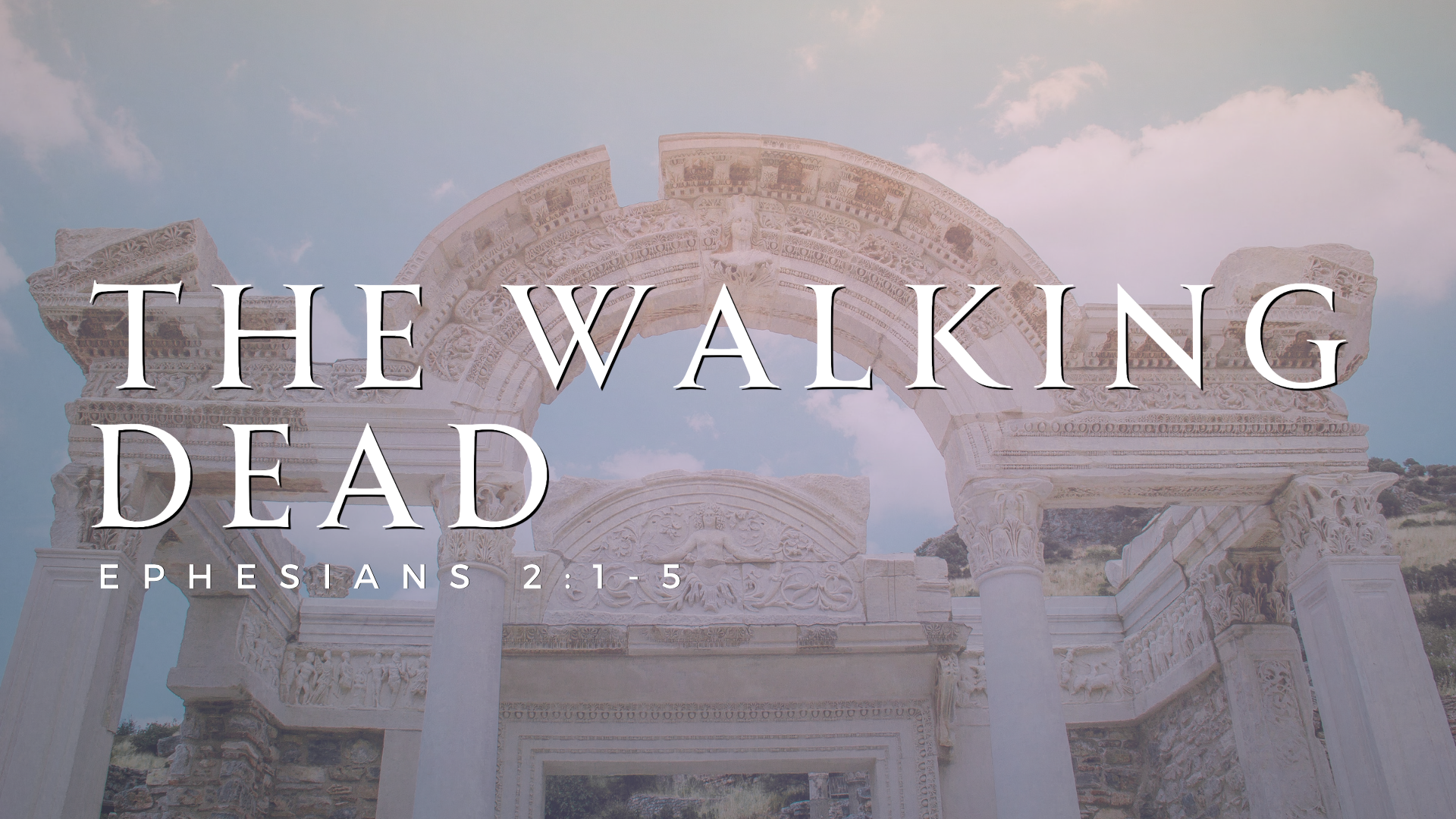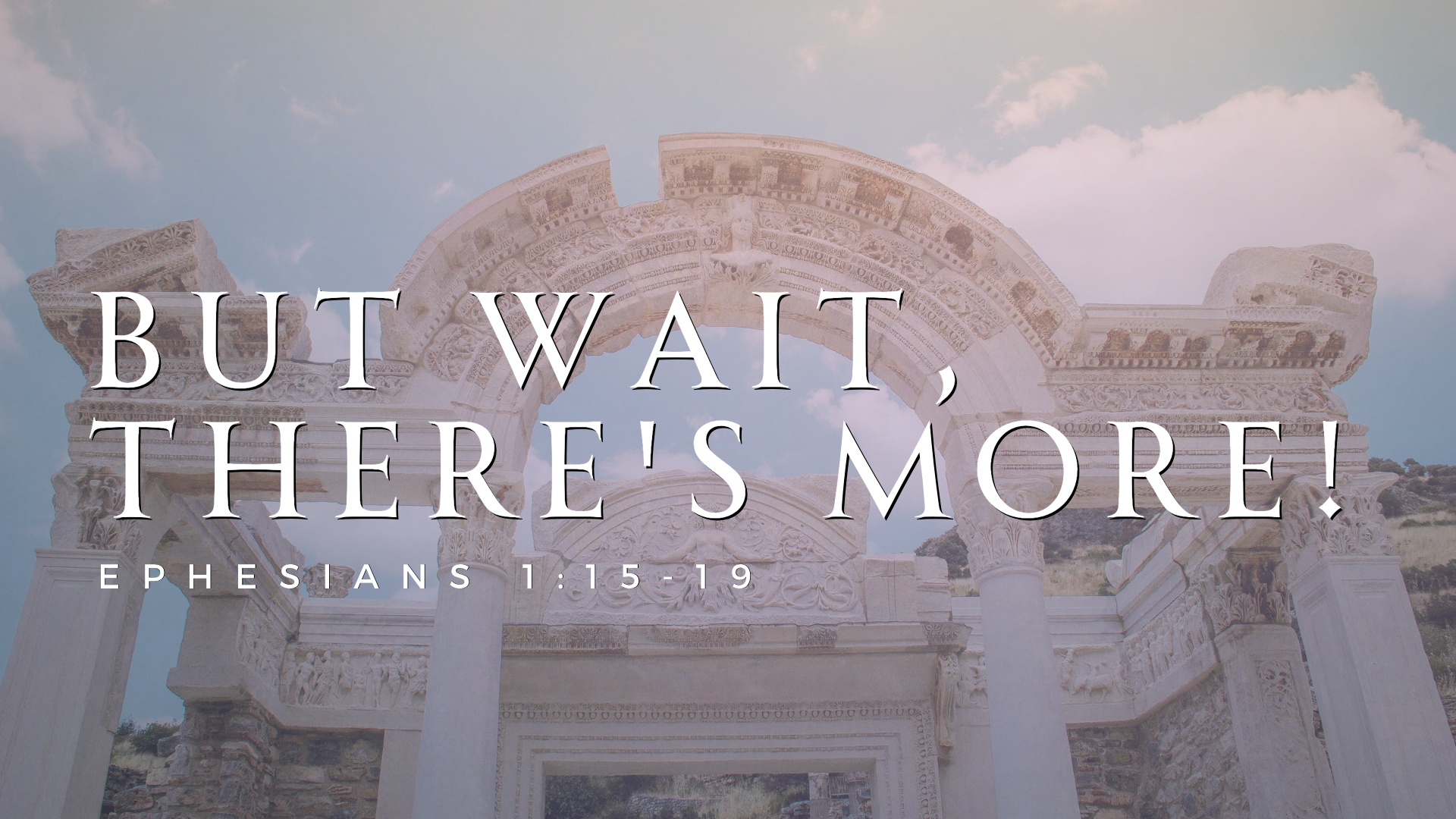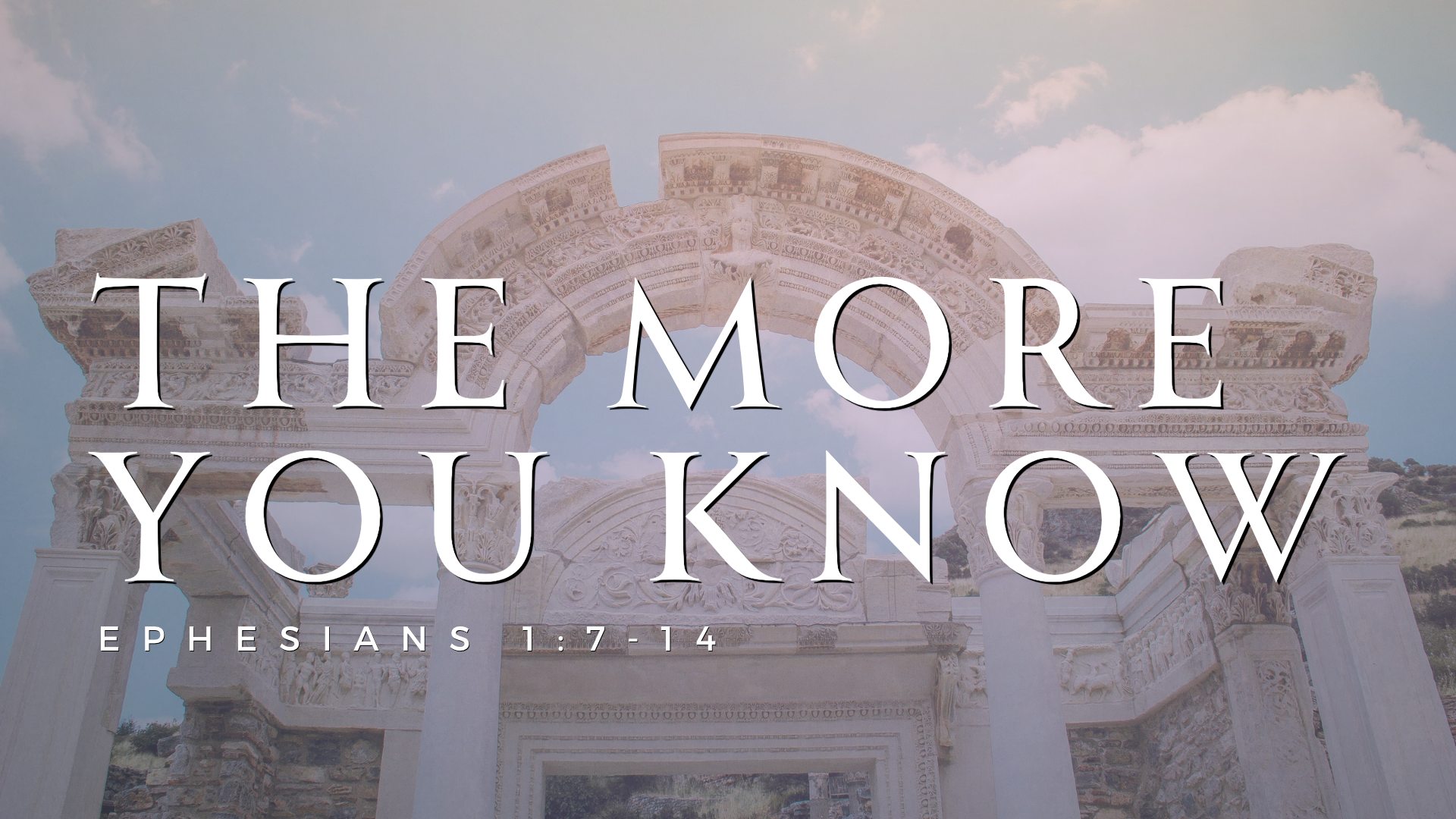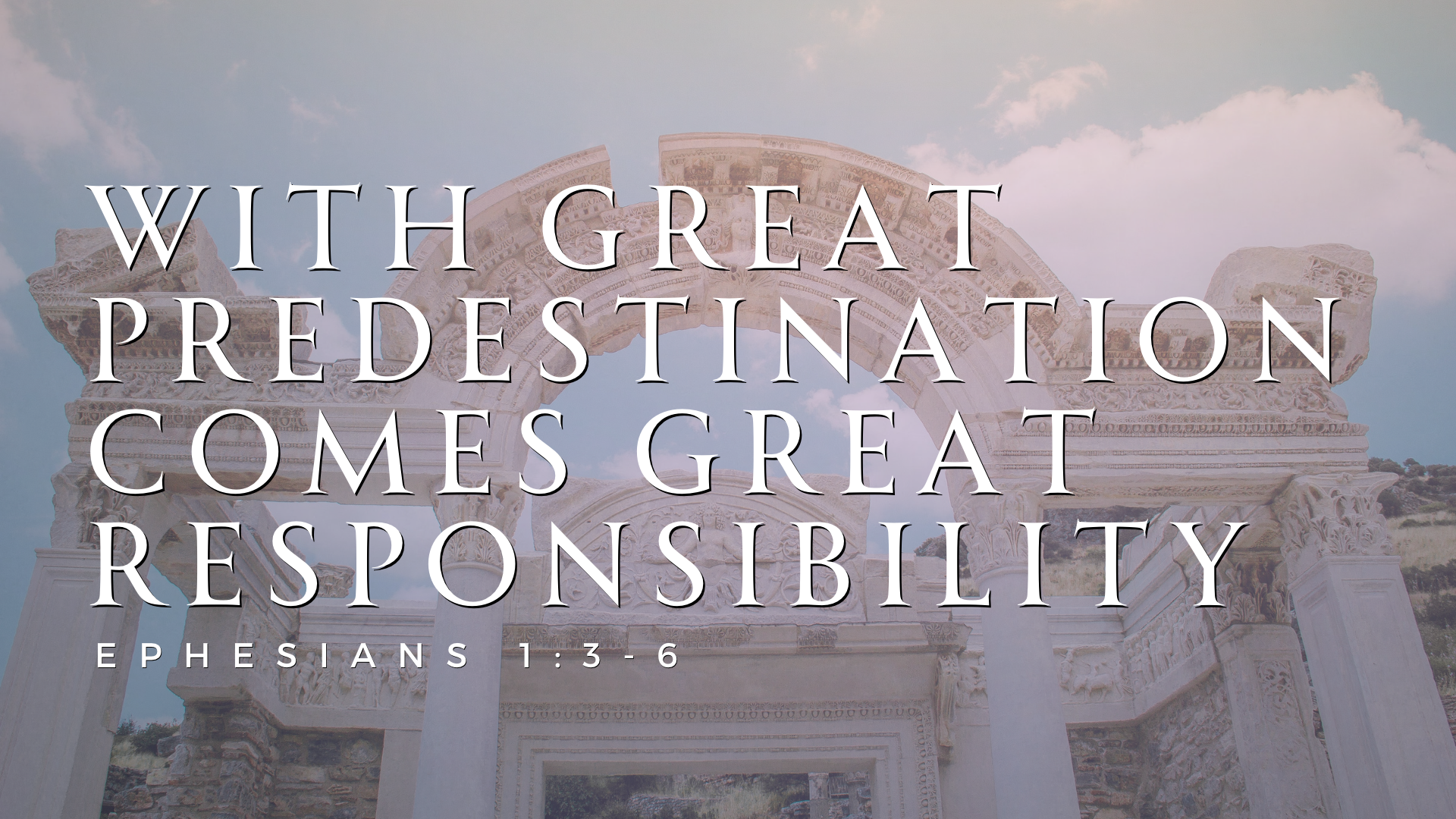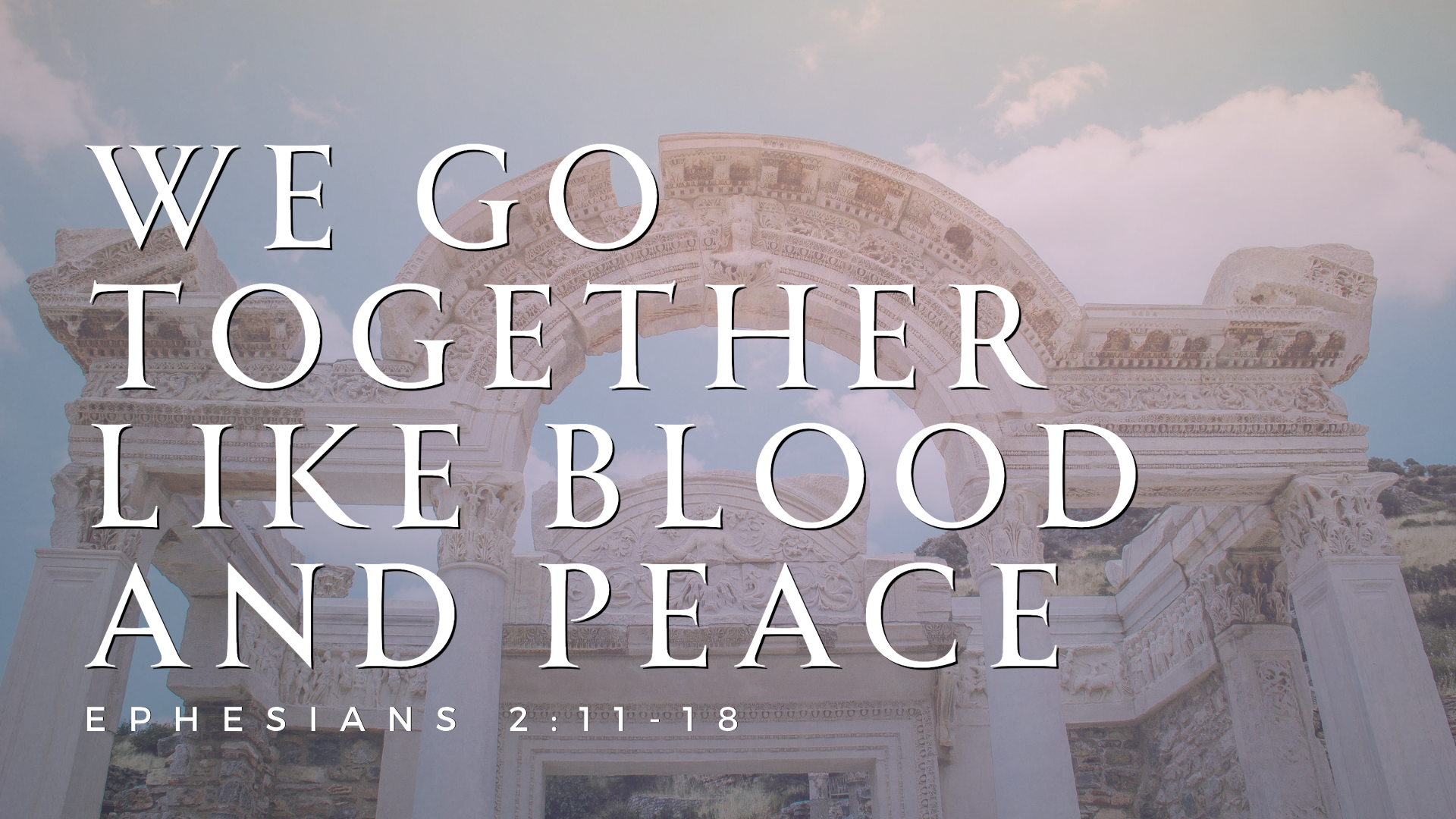
We Go Together Like Blood And Peace (Ephesians 2:11-18)
Ephesians 2:11-18 – 11 So, then, remember that at one time you were Gentiles in the flesh—called “the uncircumcised” by those called “the circumcised,” which is done in the flesh by human hands. 12 At that time you were without Christ, excluded from the citizenship of Israel, and foreigners to the covenants of promise, without hope and without God in the world. 13 But now in Christ Jesus, you who were far away have been brought near by the blood of Christ. 14 For he is our peace, who made both groups one and tore down the dividing wall of hostility. In his flesh, 15 he made of no effect the law consisting of commands and expressed in regulations, so that he might create in himself one new man from the two, resulting in peace. 16 He did this so that he might reconcile both to God in one body through the cross by which he put the hostility to death. 17 He came and proclaimed the good news of peace to you who were far away and peace to those who were near. 18 For through him we both have access in one Spirit to the Father.
For thousands of years mankind has attempted to create the optimal society filled with ideal people. We have Plato’s Republic and the Communist experiment with the New Soviet Man. There was Jonestown, supposedly dedicated to “racial and social equality.” And Fordlandia, Henry Ford’s attempt to establish a utopian city in the Brazilian rainforest. The king of cars decided that a person’s diet should consist of brown rice, whole-wheat bread, canned peaches and oatmeal. Along with meat, alcohol, tobacco, women, and soccer were forbidden. If you’re looking for a road trip idea, you can visit the ruins of at least a dozen different failed utopias in the United States.
We wouldn’t want to live in Jonestown or Fordlandia or the Soviet Union. Those experiments all failed miserably. But, as Christians, we’ve been brought into a new society, planned and paid for by God Himself. It’s called the Church, and when we cooperate with the Lord in His administration of it, this new society is able to achieve what has been impossible in every other human society. In God’s Church there is harmony and love and support and reconciliation.
The Church is a special creation, where resistance and distance and hindrance are all overcome by the power of God. It was no easy feat to dismantle the resistance that people naturally feel toward others, the distance between mankind and his Creator, and the hindrance of the unattainable demands of the Law. But all of these things are dealt with in the Church, not because we figured out a magic formula, but because Christ has done it for us.
Of course, we don’t function perfectly. We sometimes short circuit God’s way and do things in our own strength. The result is always disharmony, spiritual famine, and people being burdened by the church rather than blessed. Let’s take a look at what God wants, starting in verse 11.
Ephesians 2:11 – 11 So, then, remember that at one time you were Gentiles in the flesh—called “the uncircumcised” by those called “the circumcised,” which is done in the flesh by human hands.
In the Church, Jew and Gentile are united together. This is a hugely significant development. We don’t have a problem with Jews, but it’s hard to overstate how wide the divide between Jews and Gentiles has been, historically. These are groups that have always been alienated from each other. It’s highlighted here. When David used the term“uncircumcised,” it was a slur. Traditionally, it was not lawful for a Jew to aid a Gentile woman in giving birth, for that would bring another heathen into the world.
Jews were no more loved by Gentiles. History shows that, of all peoples, Jews have been the most hated, the most hunted, the most mistreated, no matter where they go. There is a great resistance.
If it were just a matter of physical circumcision, the problem could be easily solved. But from the beginning, it wasn’t just about the physical. Moses explained in Deuteronomy 30 that real circumcision was circumcision of the heart. The only way to bring together people who have resistance toward each other is by the transformative power of God changing their hearts.
Ephesians 2:12 – 12 At that time you were without Christ, excluded from the citizenship of Israel, and foreigners to the covenants of promise, without hope and without God in the world.
The Jews were God’s chosen people and recipients of His promises and revelation. To be a Gentile meant you were, spiritually speaking, a have-not five times over. They were without Christ. This is another problem for Calvinistic doctrine, which says the elect are in Christ from before the foundations of the earth. But, Gentiles had no Messiah. No Deliverer. They were excluded from citizenship and foreigners to the covenants. They weren’t on the guest list for admittance to the one Kingdom that actually matters. This is a blow to the normal patriotism the average Gentile might have. They were proud of their Roman citizenship. But here is Paul revealing that it didn’t matter. Roman citizenship was ultimately meaningless if you don’t have access to heaven.
They were without hope. What a terrible statement! But it’s true. Any power or wealth or position or brilliance they had would die with them. Finally, Paul says they were without God. “Now, wait just a minute – we Gentiles worship all kinds of gods!” In fact, the Gentiles accused the Jews and the Christians of being “atheos,” meaning “without God” because they didn’t worship enough of them. But Gentile gods were fake. They were ridiculous counterfeits, made in the image of man. They didn’t speak, didn’t act, didn’t do anything. A Gentile was helpless, hopeless, and heavenless. Because you cannot come through the Father except through Jesus Christ. As Paul said at the very start of this book, every spiritual blessing comes only in Christ. The Gentiles were in big trouble.
Ephesians 2:13 – 13 But now in Christ Jesus, you who were far away have been brought near by the blood of Christ.
The Gentiles were lost at sea, spiritually speaking. They had no wisdom to point them in the direction of heaven. And they had no strength to close the gap between them and God. But God is a God of love, and so He went looking for them. And He reached out to save them from their sin and bring them near to Himself. In previous studies we’ve seen how this takes place – salvation is by grace through faith. But, as Paul speaks to believing Gentiles, he reminds them that it was God’s initiative, God’s tender love, and He brought them near by the blood of Christ.
We cannot comprehend how costly this work was. In the 1970’s, Las Vegas real estate tycoon Michael Oliver spent over $100 million trying to build a libertarian utopia on a reef between Fiji and Tonga. It was called the Republic of Minerva. They minted their own currency, put up a flag, and in a few months it was all over. The plan failed and all the money they raised was gone.
$100 million seems like a huge price to pay for utopia, but it’s nothing compared to what was paid for us. There is nothing in the universe that is worth as much as a single drop of the Savior’s blood.
This is an important piece of the puzzle: You are not brought near by the teachings of Christ. There have always been unbelievers who want to apply the moral teachings of Jesus, thinking that will solve the world’s problems. Thomas Jefferson put together a manuscript called The Life And Morals Of Jesus Of Nazareth. Notice, not Jesus the Son of God. In it, he took the parts of the New Testament he approved of, but removed all the miracles, removed the resurrection, removed the second coming, removed heaven and hell. He was convinced that if we separated Christianity from what he called the “rags that enveloped it,” it would lead to the ideal man and an ideal society.
But we are not brought near to God by the teachings of Jesus, we are brought near by the blood of Jesus. It is His precious blood that brings us into the New Covenant. It is the blood that cleanses us of sin. It is only by His blood that we can enter into the sanctuary of heaven. Without His blood, His words can not help you. Without the blood, we cannot know Him or be near Him or dwell with Him.
His blood is a miracle cure. In Romans 5 it justifies us. In Ephesians 1 it redeems us. In Revelation 1 it liberates us. In Hebrews 13 it sanctifies us. And here, it brings us into God’s forever embrace.
Ephesians 2:14a – 14 For he is our peace, who made both groups one and tore down the dividing wall of hostility.
Salvation is not just about reconciling God to man, but reconciling men to each other. Being a Christian means being connected to others, whether we’re Jew or Gentile, slave or free, rich or poor, weak or strong. Jesus tore down those dividing walls that separate us and create hostility in the natural mind and He unites us so we can grow together.
In the Jewish temple there was a physical wall that kept the Gentiles in their courtyard. They were not allowed to approach any closer. But Christ comes along and says, “That’s all gone. The barriers between men are torn down and the barrier between man and God are torn down.” Remember – when Christ died, the veil of the temple was also torn from top to bottom. No more resistance between people, no more distance between them and God. We now have open access together.
Like I said, we don’t experience this perfectly. Sadly, Christians find ways to put barriers back up. Barriers between people. Barriers between God and man. Churches sometimes make it hard for people to come through the doors. You have to look a certain way. You have to sign on the dotted line before you’re allowed to really get plugged in. Then churches put up barriers between God and men. You have to go through a priest, or you have to follow everything some celebrity preacher says. You can’t pray unless you go through a labyrinth. You can’t be spiritual unless you give a certain amount of money. These things are barriers that God has cleared away and says, “The Church is a place of unity and open access and equal filling of the Spirit.”
William Barclay writes, “Christ and no other has solved the problem of our relationships with God and man.” When we trust the Lord and submit to His way of thinking, He really is able to give us the peace Paul is talking about. Jesus was really good and bringing diverse groups together. You had Simon the Zealot living and working side-by-side with Matthew the Tax Collector. You have the Church at Antioch, where you’ve got Jews and Gentiles, people from all different nations, all cooperating together peacefully and in beautiful harmony.
Ephesians 2:14b-15 – In his flesh, 15 he made of no effect the law consisting of commands and expressed in regulations, so that he might create in himself one new man from the two, resulting in peace.
In Christ we are made a new creation. It’s not that Gentiles are made Jews. This was a big fight in the early church. But in the New Testament we learn that this is a new thing. It’s not that we’re an amalgam, like brass where you have copper and zinc and you could separate them apart. As “Chrysostom explained, it is not that Christ has brought one up to the level of the other, but that he has produced a greater: ‘as if one should melt down one statue of silver and another of lead, and the two together should come out gold.’”
The result is peace. The term means not just the absence of conflict, but safety, tranquility, harmony, rest, fulfillment, completeness. This is not what we labor to attain, but what Christ has already done for us. Our part is to follow and cooperate and the result is peace as our salvation works out.
The Lord also makes the Law of Moses inoperative in our lives. This is a big deal! The Law of Moses is of no effect in your Christian life. But wait – does that mean none of the restrictions or morality in the Old system matters anymore? No. After all, Paul said in Romans 3, we “uphold the Law.”
In the dispensation of grace, the Mosaic Law serves as a tool to show a sinner that he’s a sinner. It also reveals Jesus as the Messiah. He is the One Who fulfilled the Law perfectly. But we no longer relate to God personally or corporately through the Law, but through Christ.
That doesn’t mean there are no commands or moral regulations in place for Christians. The New Testament is full of commands. In fact, all the 10 commandments are reiterated in the New Testament except the command to keep the Sabbath. So, there are still things we must do as Christians, still boundaries we must keep, but the the rituals and regulations found in the Mosaic Law no longer govern our behavior. So, don’t allow anyone to put that Law back on you. It is of no effect. The Law was a hindrance that separated God from man and men from each other. Now that hindrance has been overcome because Christ fulfilled the Law and now calls us not to rituals, but simply to Biblical love for one another. “The one who loves another has fulfilled the law.”
Ephesians 2:16 – 16 He did this so that he might reconcile both to God in one body through the cross by which he put the hostility to death.
This reconciliation means that we are no longer to find our identity in Adam, or in our nationality, or in our human heritage, but our identity is found in Christ. It’s not wrong to be excited about your country or your heritage, but we want to keep a Biblical perspective. Sadly, our culture has totally perverted what “identity” is all about. As Christians, our identity is not about our behaviors, or our politics, or our possessions. Our identity is found in Jesus Christ.
Ephesians 2:17 – 17 He came and proclaimed the good news of peace to you who were far away and peace to those who were near.
If you are a prisoner of war, peace is the most important thing, isn’t it? What do you think the folks in Ukraine would rather have right now? Cheaper gas prices, a free acre of land, a promotion at work, or peace?
In this verse, Paul is referencing Isaiah 57:19, where we read:
Isaiah 57:19 – The Lord says, “Peace, peace to the one who is far or near, and I will heal him.
This has always been God’s desire. It’s not some new scheme He worked out when Israel failed to make the cut. He is always faithful and loves all the people of the earth. But we are far from Him and need to be healed.
It’s true, Jews weren’t as far from God as Gentiles were, but everyone was still in need of salvation. And what a great thing it is that greater distance made no difference to Christ. It doesn’t matter how far a person seems to be from salvation, the Lord can reach them.
And, again, this would be a countercultural statement. The Empire made a big deal about the pax romana. But Paul says here, “Yeah, that doesn’t matter.” It’s the Lord’s peace that matters.
Ephesians 2:18 – 18 For through him we both have access in one Spirit to the Father.
So, we have this new creation, the Church, comprised of Jews and Gentiles, living in peace and reconciliation with one another and with God, in friendship and nearness and harmony. What is the bond that keeps us together and gives us access to the Father? The Holy Spirit. He brings us into the courts of the King. He brings us into the sanctuary. He brings us before the throne. He gives us free and unrestricted access to God Himself. But we’re not just there to observe – we’re invited to participate in the sanctuary, before the throne. What can we bring as the Spirit takes us in? We can bring our prayers and our offerings and other people with us. We bring our cares and cast them down at the feet of God Himself, knowing He cares for us.
We don’t need a certain security clearance for this access. We don’t have to donate a certain amount to get some face time with the Big Man. Those are human ways of thinking. We have the access now.
So God has created this unique, otherwise impossible arrangement called the Church. In God’s power, it accomplishes what humanity has always wanted but has never been able to attain. It unifies people. It ends hostilities. It builds and grows and spreads peace and harmony.
On this side of eternity it doesn’t happen perfectly, but that’s because we’re imperfect, it’s not because God’s design is insufficient. Meanwhile, the Lord is continually reshaping us to be more and more like Him so that we can more and more experience His peace and harmony and power.
The danger is that we can fall back into our old ways. We can drift back into resistance against others, distance from God, the hindrance of legalism. Those are all things Christ tore down by His blood. Instead of putting ourselves back into the shackles of those old human attitudes and opinions and prejudices, we’re called to live in the Spirit, walk in the Spirit, follow Him forward as He leads us into all truth, on level ground, giving us rest and peace and access to all we need.
